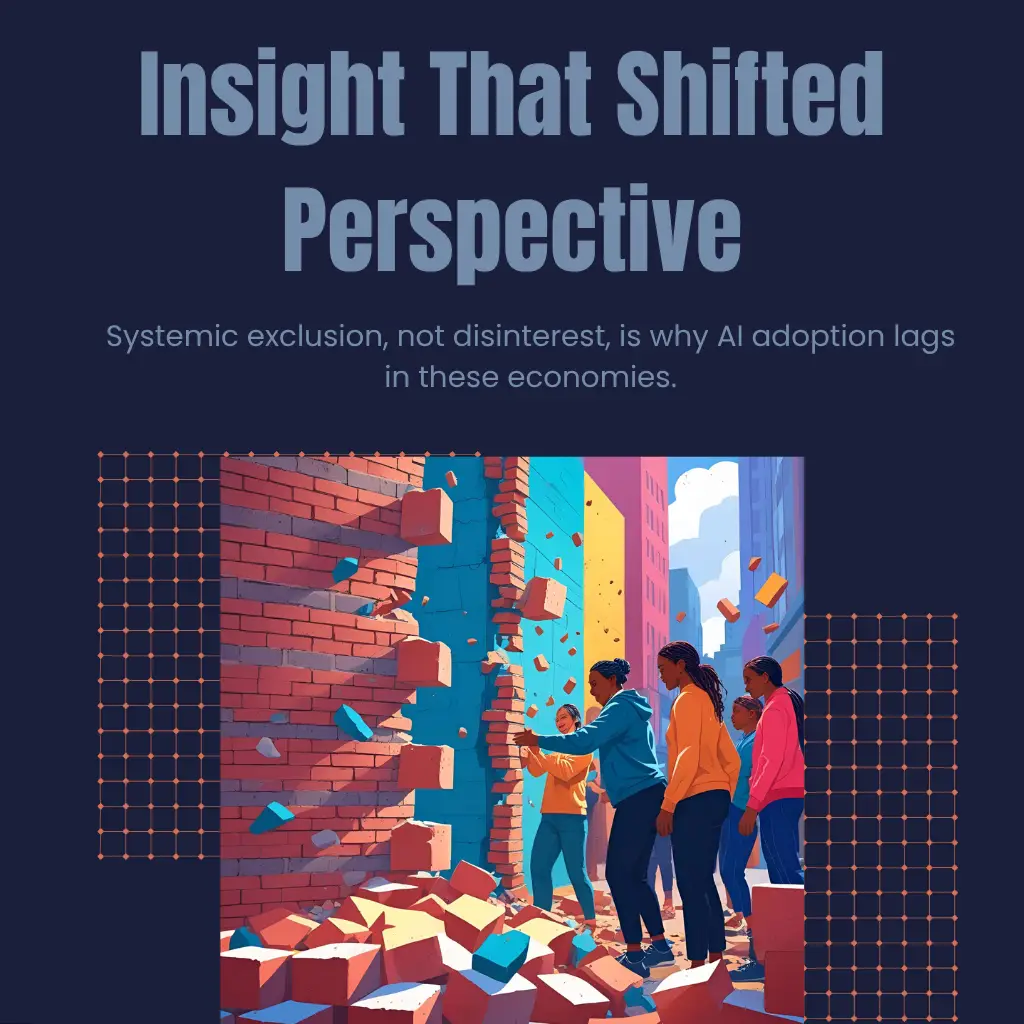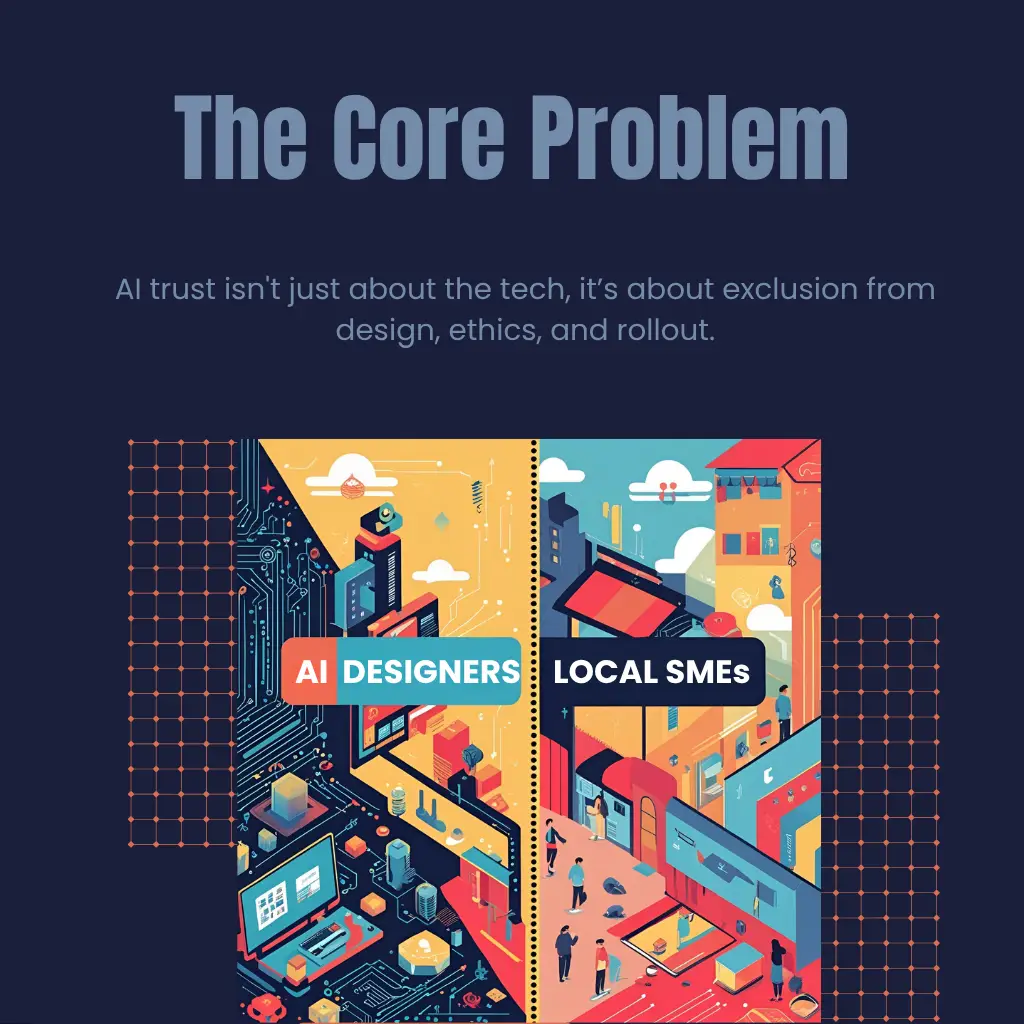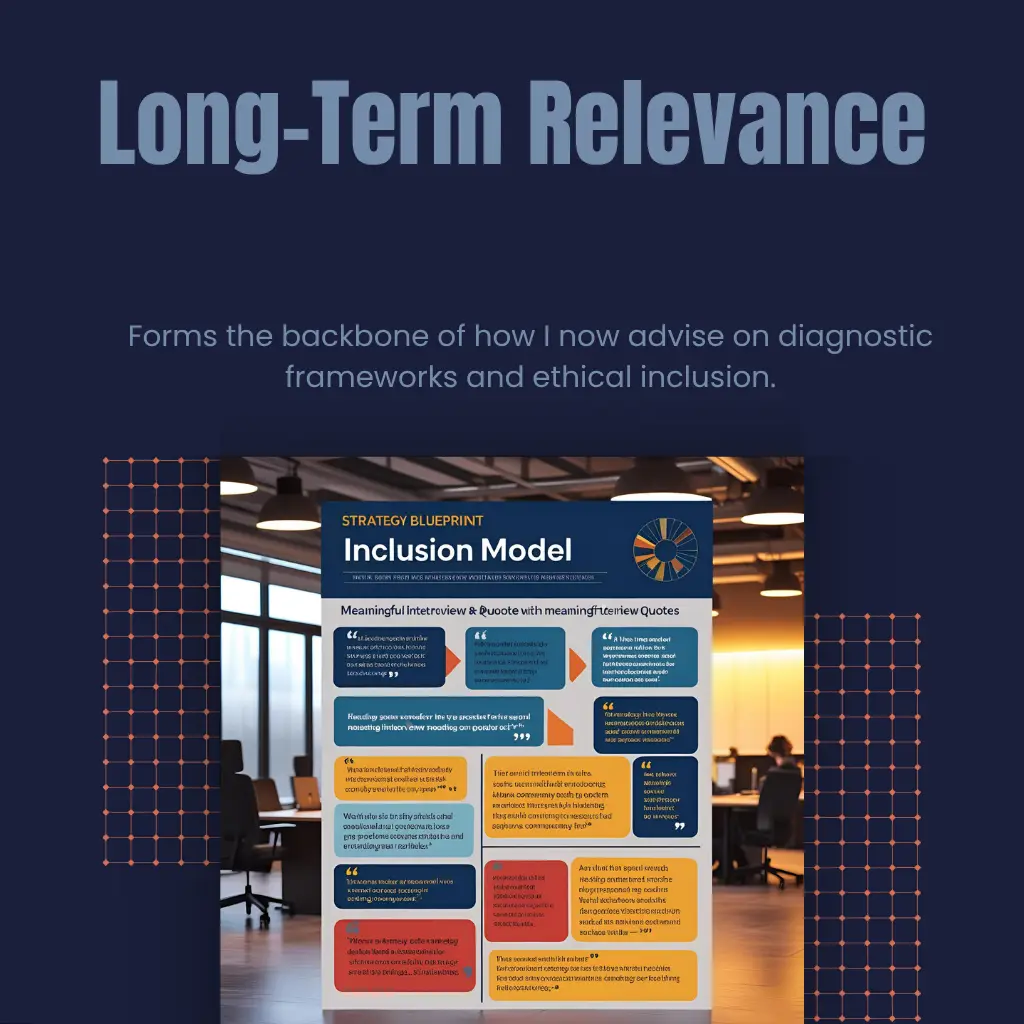Responsible AI for Underserved Businesses: Ethics, Policy & Field Insight
The Problem: SMEs in emerging economies are often left out of AI implementation conversations, not just due to lack of infrastructure, but because ethical risk, data trust and adoption concerns are not studied in their context.
The Work
Qualitative Research Project
Conducted interviews with SME founders in low-resource settings to explore concerns around algorithmic risk, digital exclusion and trust in AI systems. Synthesized findings through the lens of contextual ethics and responsible innovation frameworks.
Relevance to Education: Offers insight into how users perceive and engage with AI systems which is essential for designing trust-based, inclusive technologies in education.
The Insight
AI adoption in these markets isn’t hindered by lack of interest, it’s hindered by systemic exclusion in design, policy blind spots and infrastructure assumptions. This work revealed the need for participatory models of AI inclusion and informed my broader diagnostic frameworks

Why It Matters
This project expanded my understanding of how ethical principles translate differently across geographies and market tiers. It’s foundational to how I now think about AI policy, advocacy and inclusion which has directly informed my public research and strategy work.

Tools Used
- Otter.ai (interview transcription)
- Notion
- Google docs
- Google scholar
- Miro
- Zotero
Skills Highlighted
- Qualitative research
- Ethics synthesis
- Structured interviewing
- Cross-cultural insight framing
- Human-centered design interpretation
- Policy-context translation

